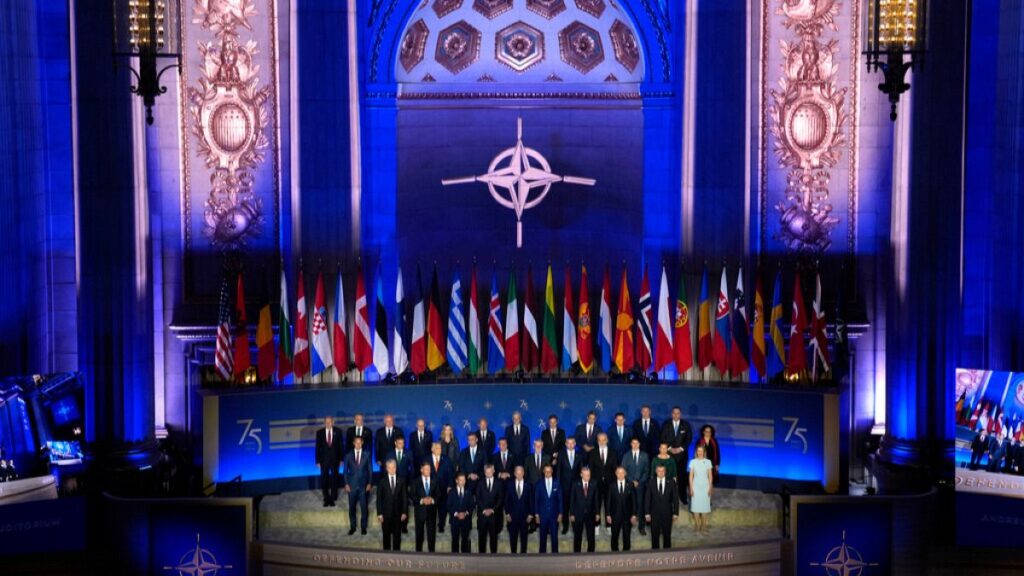The threat of a potential Trump return to the White House is raising increasing questions in Brussels about Washington’s continued commitment to the alliance.
As NATO’s 75th anniversary summit opened in Washington, European leaders were quick to reaffirm their increased spending on the alliance, as questions over the change in the US presidency and Ukraine’s potential admission to NATO remain looming.
Before the conference began, EU foreign policy chief Josep Borrell stressed that Europe had increased its contributions to the Transatlantic Alliance, but he did not hesitate to blame the United States, which is increasingly hesitant to help Ukraine.
“Let me remind you that the awakening of Europe – however necessary – must not mean that the United States should rest on its laurels.”Josep Borrell said on Tuesday, before adding that Washington’s deliberations on sending military support to kyiv were accompanied “of a bill (to be paid) in terms of human lives lost.”
Latvian President Edgars Rinkēvičs said: “There is a debate in the United States that the United States is doing a lot to support Ukraine and Europe is not doing enough. If you look at the numbers, it is actually a different picture. Europe is doing more than the United States. We take security and defense seriously.”
The sharp remarks from European leaders came as the United States prepares for an election in which incumbent President Joe Biden will run against former president Donald Trump, who is known for his skepticism of NATO.
Joe Biden is struggling to convince some in his own party that he is the right candidate for the presidential race. Meanwhile, his re-election bid has been marred by doubts about his mental acuity, following a disastrous debate in which many felt he fell short.
The threat of a potential Trump return to the White House has raised growing questions in Brussels about Washington’s continued commitment to the alliance. Trump has previously criticized the pact and its members, threatening to leave if other countries do not increase their spending.
In a campaign speech in February, Trump said he would encourage Russia to do “whatever it wants” to NATO members that fail to meet their defense spending targets.
The confirmation that Europe was serious about its contributions to NATO was echoed by others at the start of the summit, who took to the airwaves to express their support for the alliance, including the recent candidate for the EU’s top representative to replace Josep Borrell, Kaja Kallas.
“We should not be afraid of our own strength,” Kaja Kallas stressed.
Admission of Ukraine into the alliance
The countries also tried to give assurances that kyiv would eventually join the alliance, but not before the end of Russia’s war in Ukraine. Ukraine would then have to gain the unanimity of the member countries and meet the conditions set out in the treaty, namely democratic reforms and a contribution to security.
US Secretary of State Antony Blinken has said that Ukraine’s path to NATO membership is “irreversible”, but has not committed to a specific timetable.
Outgoing NATO Secretary General Jens Stoltenberg echoed Blinken’s comments, telling reporters Wednesday that Ukraine would join NATO, but that it was “too early to say when that would happen.”
A statement by the 32 allies on Wednesday is expected to reaffirm the alliance’s commitment to Ukraine, following Ukrainian President Volodymyr Zelensky’s request for a clear guarantee that Ukraine can join the alliance.
However, some countries opposed Ukraine’s membership, saying it would expose the alliance’s allies to the risk of being drawn into a wider war.
“It is clear to everyone that Ukraine’s accession to NATO is still not a realistic option, as it would entail the risk of direct confrontation with Russia”said Hungarian Foreign Minister Péter Szijjártó.

